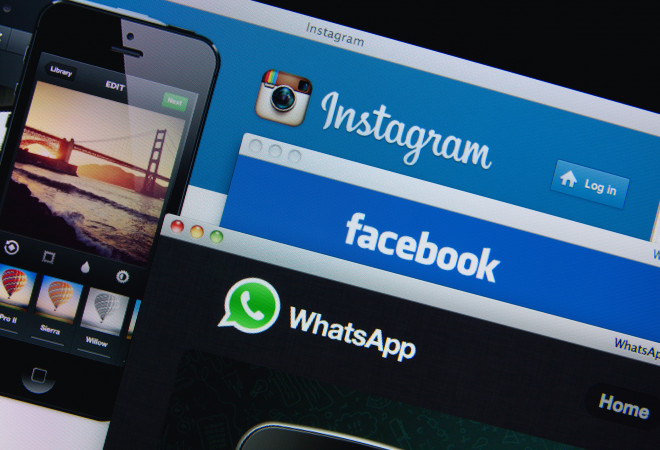It was supposed to be a totally normal evening. Alan Parson's soothing "Tales of Mystery and Imagination" was purring from my speakers, a steaming cup of tea plus some reading material were ready and I had plans to watch a detective show. But then, I heard an almost forgotten sound: an SMS notification. Nowadays, this form of communication is mostly used by the authorities or companies for account verification. Sent by a friend, it read "WhatsApp is gone, Facebook is gone, people are already asking what's next! It's total chaos!" It sounded interesting so I went to have a look.

While my PC was booting up, Signal and Telegram chimed in to notify me that WhatsAppp, Facebook and Instagram were down. Thanks–again. Twitter was overflowing with malicious joy and smugness. Traditionally, Twitter users tend to regard the (mostly) elder Facebook users and the self-promotion experts on Instagram with some level of disdain. Their services being offline while Twitter was still up and running caused hilarity. Meanwhile, I got the first email on the issue: "Latest newsletter: WhatsApp offline."
Users that were still online vividly engaged in idle speculation and crude theories. Iranian trojans were said to be responsible or maybe the latest whistleblower had prompted Facebook to make drastic network changes. A few particularly unimaginative netizens linked the events to the imminent Windows 11 release. The two dates were so close together it couldn't have been coincidence, after all! A look at the usual media portals revealed the outage made front-page headlines everywhere. Elections, wars, the Nobel prize, these news all fade to utter insignificance when users can no longer post their current fad diet or the results from their latest ab workout!
Mark Zuckerberg himself tried to calm the waves, while he was kicking his social media emergency response teams (into high gear). I was anticipating videos with crying managers, like the ones we see in Asia, but empty phrases, apologies and announcements were all I got. At the same time, tech forums were having a field day, with users either gloating or sending around screenshots of their favorite error message. "5xx Server Error" was the clear winner and passionate admins were beating their brains out about possible error sources. A few more factually inclined nerds suspected misconfigured DNS entries or routers. Back on Twitter, users were now trying to out-joke each other, each citing anecdotal evidence about friends who reopened accounts on Twitter just to be able to post again.
 Influencers under stress: An evening without holding products into the camera
Influencers under stress: An evening without holding products into the camera
Then, the first projections came in: Mark Zuckerberg had allegedly lost several billion US dollars and was now down to "just over 120 billion". It was almost enough to make me want to pass the hat for the poor soul. Somewhat mischievously, it was reported that workers could no longer get into offices and meeting rooms since they were all network-(dis)connected and their security systems offline. Another message rushed in: "www.facebook.com" was now supposedly for sale, as if the end of the tech giant was near. It turned out to be a hoax and I had to bury my plan to gift the domain to animal welfare services.
More interesting were the comments beyond the inevitable quips: For the first time, some politicians noticed the fact that WhatsApp, Facebook and Instagram all practically coming from the same company creates certain interdependencies. Another current government member, who apparently knew the internet only through stories from his grandchildren, expressed shock and disbelief at the sheer number of 6.2 billions users–and the ability to make phone calls through WhatsApp. Maybe his rotary phone at home hasn't caught up yet technologically. Others expressed dismay that such an outage was even possible, as if big tech was immune to failure.
Meanwhile, I got a push notification from an already forgotten messaging app on my cellphone (the first one since its installation!) that broke the tragic news. Next, my landline rang. Yes, I had heard. Yes it was hard to believe, and yes, I would make it through the evening without the services. Things got a little stressful! There was already whimsical speculation about how this evening would affect the birth rate and people were announcing the return of SMS and bemoaning overloaded phone networks. Folks started talking to each other again, would you believe it! Journalists spoke of a "memorable" evening and spouted their two cents about potential options and future alternatives.

Facebook may be a digital hub to the world, Instagram a provider of pretty pictures, and WhatsApp a means to connect people, but a misconfigured router gave millions an opportunity for nice and quiet hours. I had now switched to gentle Jazz vibes, with my favorite inspector scheduled to investigate a murder in the English upper class in one hour's time. All was well–the birds way up in the sky above my head appeared equally unfazed by the dire situation. As I shut down my PC and muted my cellphone, the book was still waiting for me and the world kept on spinning.




Hi Sven,
Thanks for a tongue in the chick column.
Just to be clear: I believe this is the very first time you didn't end it with a "What I would like to know is ..."
So, taking it from the outstanding Jerry Bruckheimer's Lucifer series, let me ask you back: "What is it you TRULY desire to know?" ;)
More to the point however, I guess that not only did we all (well, most of us) become addicted to the technological means around us and -- as animals of habit -- we are at a loss when the means we're used to becomes unavailable, but also that strategically critical infrastructures are much too dependent on such communications (and others) means, at times without backup safety nets, and such a disruption in one (or more) of these means has the potential to lead to actual catastrophic outcomes (lucky us, it didn't this time around).
It used to be that the Internet is redundant enough to stay up no matter what.
Apparently, this is no longer true.
Creating alternative infrastructures, to ensure continuity of strategic services should be top priority for the decision makers (government or small businesses and even individuals alike).
Keep on the good work,
Eric
P.S.: And even though I don't have Lucifer's mojo - what is it you TRULY desire to know? ;)
What's WhatsApp ?
Still being in the 20th Century makes me feel that I may be a little behind the times.. As the clock says,..."tic-tok, tic-tok"...
Am I missing something important ?
Oh well, back to my book !
cheers
Mr. Krumrey, I read all of your blogs and this is by far my favorite! I personally do not use any social media and do not understand the obsession with it. I prefer the privacy and freedom of being unknown. Keep up the good work! Best Regards, Sal
Maybe if they would all go down and stay down people would begin to leave the shells and interact with real people. You know like they used to?
As I shut down my PC and muted my cellphone, the book was still waiting for me and the world kept on spinning.
As it always will :)
At least that is one reliable thing we can count on.
I didn't notice anything wrong! Maybe it is because I don't use any social media apps because of all the mentally challenged people that are using them instead of havin actual conversations!
I'd like to see them gone for good.
One thing, sadly, that social media has given us is a glimpse into how many gullible people live amongst us who faithfully believe "If you read it on Facebook, it has to be true."
I'm skeptical that platforms that allow anonymous trolls to spread misinformation has made our lives any better.